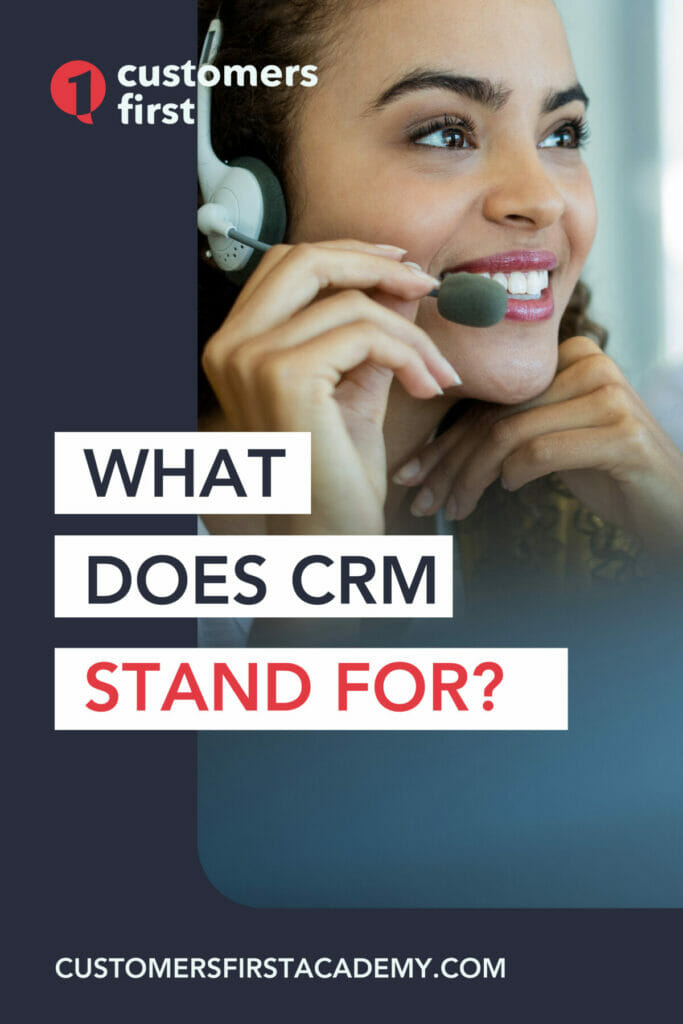What Does CRM Stand For And What Does It Do?
What does CRM stand for? CRM is an abbreviation of Customer Relationship Management and assists with acquiring and nurturing customers to add value to the business and its prospects.
CRM platforms allow employees to view and modify prospect and customer information by storing the data in a central database. This data can then be analyzed and segmented to develop targeted campaigns.

CRM tools allow you to track and identify potential customers, generate reporting on revenue, and analyze trends. Effective CRM systems are easy to use, provide up-to-date sales data and accurate metrics.
Now that we’ve addressed the question “what does CRM stand for?” let’s take a look at different types of CRM systems.
3 Types of CRM Systems
CRM systems help you with analysis, collaboration, and the smooth operation of your customer relationships. A CRM system can be classified into three main categories: analytical, collaborative, and operational.
- Analytical CRM
Analytical CRM enables you to filter and acquire customer information. The data collected in analytics is directly linked to operational CRM, which allows you to become more efficient in targeting and communicating with prospects. As a result, it helps you increase customer satisfaction and retention.
- Collaborative CRM
Collaborative CRM enables employees to collect, organize, and share customer information across multiple departments. The data can then be used to enhance the user experience and increase customer loyalty.
- Operational CRM
Operational CRM optimizes the operations of your company. It stores customer information to support customer service, marketing, and sales teams to handle customer communications.
For example, using Zoho software, rated one of the best CRM systems in 2020, allows users to drive traffic, increase sales, and measure sales performance all in one place. This CRM ensures business success by providing tools that support growth. With Zoho, you can manage contacts, get sales and payment information, and build valuable relationships. This CRM lets you identify, capture, score, and track leads.
Zoho is an example of many CRM software on the market you can choose from based on your budget and business needs.
Which Steps Are Involved in the CRM Process?
Brand awareness can be cultivated by creating effective marketing campaigns that leverage segmented data captured by CRMs to generate more prospects and increase sales.

- Engagement
Your CRM will ensure your leads receive timely, value-added communication at the right time. CRM systems use automated marketing and engagement systems to attract and nurture leads effectively.
- Conversion
The conversion process is critical to every business. To generate revenue, you must sell your products or services, and to do that, you need the necessary tracking tools. CRM software is specifically designed to support your business with these tools.
- Upsells
A good CRM will provide you with the tools you’ll need to track your prospects’ shopping habits and allow you to introduce them to other products, upgrades, and services.
- Customer Service
It is vital to provide an excellent customer service experience in every business. Quick responses, self-help options, and friendly support are all essential components of high-quality customer service. CRM will help you ensure your customers are satisfied with the service you provide. Since happy customers are returning customers, your job is to them how much you value their business using top-notch CRM tools!

Who Needs to Use CRM Systems
CRM is helpful in customer service, marketing, and sales departments.
As we covered above, it can generate revenue by boosting client relationships and increasing marketing and sales effectiveness. Its features can also help users retain past customers and bring back old ones.

The fact that CRM systems provide their users with the potential for exponential growth is astounding. Surprisingly, Expert Market, a UK-based customer relationship management company, reported that about 43% of users only use half of provided CRM system features.
Salesforce, a cloud-based software company, reported that using CRM can increase sales by as much as 29%, improving productivity, along with increasing revenue by up to 41%. And according to TrackVia, an application building company, a salesperson using CRM could potentially increase revenue by as much as 41%.
Furthermore, CRM tools will maximize the conversion potential of your business regardless of whether it is an established business or a startup.
So What Does CRM Stand For?
So, if you’re asking, “what does CRM stand for,” customer relationship management stands for growth.
CRM provides the tools you need to simplify processes while increasing your business’s conversion and customer relationships.
Other Resources:
CustomersFirst Academy offers comprehensive customer service training designed to help you grow your skills and advance your career.
To keep learning and developing your knowledge of customer service, we highly recommend the additional resources below:
10 Best Customer Experience Management Software Solutions
Best Customer Database Software for Your Team
The Importance of a Customer Life Cycle in Business Growth
Business Strategy Guide to Customer Intimacy

